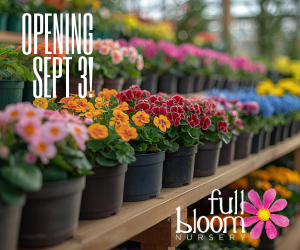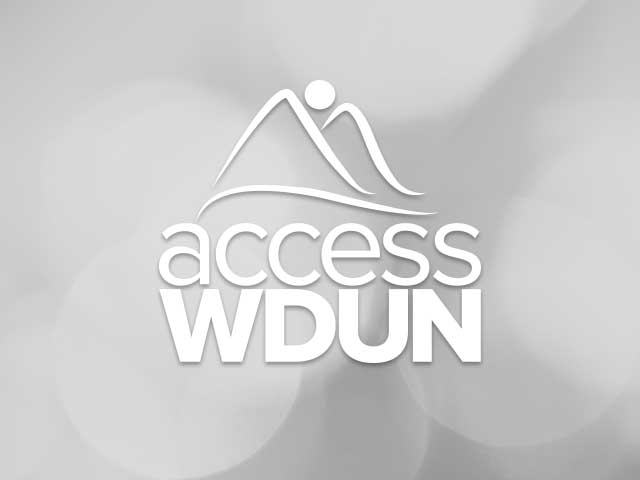Conservative groups are systematically attempting to challenge the legitimacy of large numbers of voter registrations across the country before the presidential election.
The strategy is part of a wider effort raising questions about the integrity of this year's election as former President Donald Trump repeatedly claims without evidence that his opponents are trying to cheat.
The voter roll tactics include mass door-knocking campaigns, using special software designed to identify voters whose eligibility could be challenged and a crush of lawsuits. Some of those have been brought by the Republican National Committee, which hosts the GOP's national convention this coming week.
Several Republican secretaries of state are combing through voter lists on their own, including in Ohio and Tennessee, or to comply with aggressive new state voting laws.
Those behind the reviews cast them as good government endeavors intended to help local election offices clean up the rolls. Voting rights groups and Democrats believe the effort aims to shake faith in the results of the 2024 election and lay the legal groundwork to challenge the results.
Here is a look at what's happening around voter roll challenges:
“Soles to the Rolls” in Michigan, whose name echoes the “Souls to the Polls” get-out-the-vote efforts of Black churches, and Nevada's Pigpen Project are among state-level initiatives in which volunteers are trying to find flaws in state voter rolls.
Their findings can sound ominous: dead people or non-U.S. citizens registered, or people listed at addresses where they no longer live, suggesting the potential for double-voting. Conservative activists identify the suspect records, then deliver them to local or state election offices for possible removal.
Michigan Secretary of State Jocelyn Benson, a Democrat, earlier this year told a suburban Detroit clerk to reinstate the registrations of about 1,000 people who had been removed through such an effort, after the purge was reported by The New York Times.
Amy Cohen, executive director of the National Association of State Election Directors, said information from member states suggests the efforts are happening nationwide. She said many of the challenges ignore or misunderstand the complexity and legal requirements around maintaining voter rolls.
The National Voter Registration Act already requires states to take steps to maintain accurate and current voter registration lists. Just because someone finds an outdated registration doesn’t mean election officials are unaware of it, Cohen said.
“Voter registration lists are living, breathing databases,” she said. “That’s part of the challenge, because people move and die and change their names and just exist every single day, and when you get a list, you’re purchasing a moment in time. Registration activities and voter registration list maintenance activities are happening on an ongoing basis.”
Conservative groups behind the voter roll reviews have filed hundreds of public records requests across the country to gain access to voter files. In almost a quarter of states, the disputes have landed in the courts. One of their goals is to create public databases for anyone to search and question whether certain voters should be allowed on a state's rolls.
The Public Interest Legal Foundation, led by conservative attorney Cleta Mitchell, is behind challenges in Colorado, Hawaii, Michigan, Minnesota, South Carolina and Wisconsin. Mitchell is perhaps best known for participating in Trump's call asking Georgia's secretary of state to “find” the votes he needed to win the state in 2020. Arizona, California, Maryland and Pennsylvania face lawsuits by other groups.
In Georgia, an Associated Press survey of the state's 40 largest counties found that more than 18,000 voters had been challenged over the past two years, even though local election offices had rejected most of them.
Many of the volunteer groups have received encouragement to mine the voter lists at workshops led by MyPillow CEO Mike Lindell, a Trump ally and leading voice promoting election conspiracy theories. They also sometimes employ tools such as EagleAI Network, a data-matching software program developed for Mitchell's Election Integrity Network that creates voter lists from change-of-address forms, criminal justice records and property tax data.
The Public Interest Legal Foundation also sued the Electronic Registration Information Center, a voluntary system in which states share data to maintain accurate voter lists. Its lawsuit sought access to information the member states had agreed to keep private when they joined.
The foundation's president and general counsel, J. Christian Adams, who previously worked in the Justice Department’s Voting Section, said not a single eligible voter has been removed from the rolls as a result of his group's efforts. He called the movement’s critics paranoid.
“Fraud, I don’t care about," he said. “Accuracy is what I care about.” He said correct voter lists are especially important in states that mail ballots to every registration on their lists.
At least nine Republican-led states have abandoned the voluntary network, known as ERIC, after it became embroiled in election conspiracy theories, weakening its ability to cross-check voter records across state lines. Supporters of the system noted the paradox of the Republican states leaving because it's the only national system that helps states identify voters who are not eligible to cast a ballot.
The Republican National Committee, newly reconstituted under Trump, also is involved in efforts to challenge voter rolls before the November election.
Michigan's voter rolls have been targeted in numerous lawsuits over the past four years by the RNC and others. A Nevada lawsuit filed by the RNC in March alleges the state is violating the National Voter Registration Act by failing to keep voter registration records accurate and updated. RNC Chair Michael Whatley at the time cited the need for “clean voter rolls.”
Experts say the federal law actually errs on the side of enfranchising voters. To prevent eligible voters from being disenrolled, it requires outdated records to remain in the system for some years after they're flagged as a potential concern. It's a technicality that can explain questions often raised by conservative groups, such as the number of voter registrations exceeding a jurisdiction's population.
It's like “comparing apples to orangutans,” Nevada's Democratic attorney general said in faulting the data RNC cited in its analysis. In its brief, the Democratic National Committee cast the RNC lawsuits as building ammunition for a 2024 election challenge.
“This lawsuit is little more than political theater, designed less to address any real (much less substantial) issue with Nevada’s voter registration lists, than to sow public distrust in the security and integrity of our electoral systems," the filing said. "It is no more than a continuation of Republicans’ 2020 efforts to undermine public confidence in our elections.”
Trump ally Ken Blackwell, who leads election efforts at the America First Policy Institute, has said legitimate voters “run the risk of having their hard-won right to vote diluted by unlawfully cast ballots” if voter roll glitches aren’t addressed.
However, election law experts say the problem that such efforts aim to fix — ineligible voters casting ballots — remains exceptionally rare.
“Why? Because it’s common sense that one person voting when they’re not eligible is not going to swing an election, and is going to expose himself to criminal penalties,” said Alice Clapman, senior counsel with the Brennan Center for Justice’s democracy program. “So, even if someone were inclined to do this, it’s very high risk and very low reward.”
Clapman said the disinformation around voter rolls is eroding trust in election officials, who already face pressure and threats, and is undermining faith in the “proud civic activity” of voting.
“What’s so insidious about it is voting used to be a unifying national activity,” she said. “It's now become this object of suspicion, and that’s really corrosive of our democracy.”

















